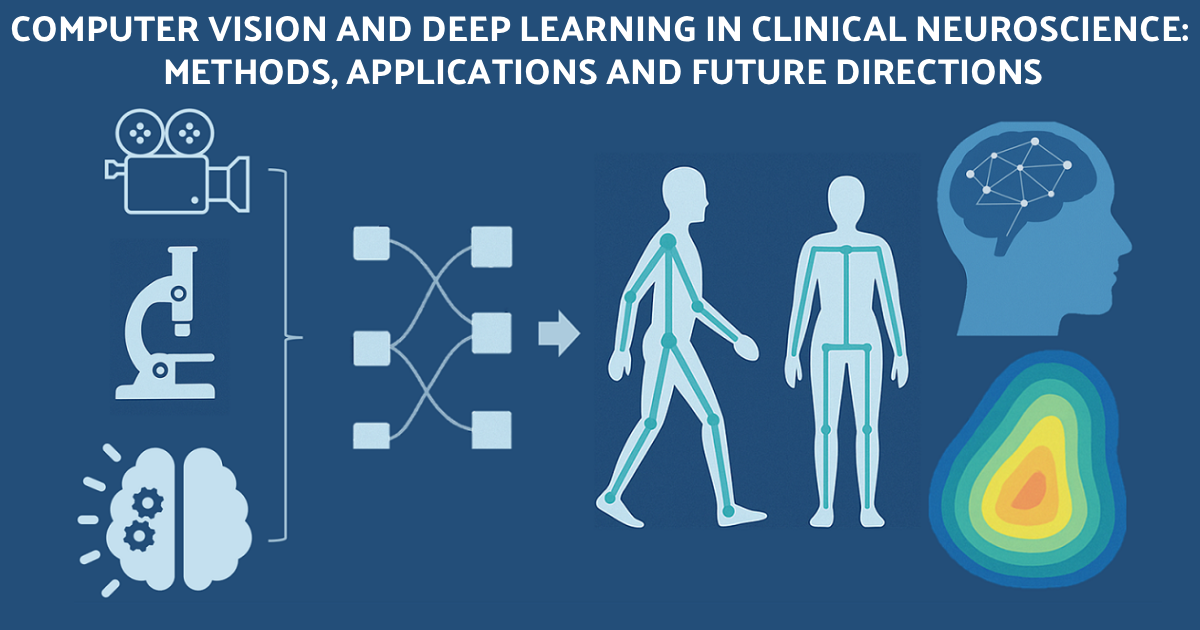- 2.5Impact Factor
- 5.5CiteScore
- 20 daysTime to First Decision
Computer Vision and Deep Learning in Clinical Neuroscience: Methods, Applications and Future Directions
This special issue belongs to the section “Applied Biosciences and Bioengineering“.
Special Issue Information
Dear Colleagues,
We invite submissions for this Special Issue of Applied Sciences, related to computer vision and deep learning in clinical contexts, with a particular focus on applications in neurology, psychiatry, geriatrics, and movement sciences. As large quantities of visual data from clinical examinations, video recordings, and imaging are often routinely available, artificial intelligence (AI)—particularly computer vision (CV) and deep learning (DL)—offers powerful tools for objective, scalable, and reproducible analysis. As such, these methods hold great potential in overcoming central challenges in modern medical practice. This Special Issue aims to showcase interdisciplinary work that bridges computer science, engineering, medical and neuroscience, and clinical practice. We welcome original research and reviews on CV/DL methods applied to the quantification of clinically meaningful outcomes, as well as diagnosis, prognosis, or treatment monitoring in neurological, psychiatric, and movement-related conditions. Topics of interest include, but are not limited to, video-based motion analysis, facial or eye movement tracking, gait and posture assessment, multimodal data fusion, neuroimaging analysis, explainable AI, and clinical validation frameworks. We particularly encourage contributions addressing real-world clinical integration, ethical considerations, and accessibility in low-resource settings, as well as in underrepresented groups. Both technical and translational studies are welcome.
Dr. Maximilian Friedrich
Prof. Dr. Jane E. Alty
Guest Editors
Manuscript Submission Information
Manuscripts should be submitted online at www.mdpi.com by registering and logging in to this website. Once you are registered, click here to go to the submission form. Manuscripts can be submitted until the deadline. All submissions that pass pre-check are peer-reviewed. Accepted papers will be published continuously in the journal (as soon as accepted) and will be listed together on the special issue website. Research articles, review articles as well as short communications are invited. For planned papers, a title and short abstract (about 250 words) can be sent to the Editorial Office for assessment.
Submitted manuscripts should not have been published previously, nor be under consideration for publication elsewhere (except conference proceedings papers). All manuscripts are thoroughly refereed through a single-blind peer-review process. A guide for authors and other relevant information for submission of manuscripts is available on the Instructions for Authors page. Applied Sciences is an international peer-reviewed open access semimonthly journal published by MDPI.
Please visit the Instructions for Authors page before submitting a manuscript. The Article Processing Charge (APC) for publication in this open access journal is 2400 CHF (Swiss Francs). Submitted papers should be well formatted and use good English. Authors may use MDPI's English editing service prior to publication or during author revisions.
Keywords
- computer vision
- deep learning
- neurology
- psychiatry
- movement science
- clinical applications
- symptom quantification
- video analysis
- medical AI
- translational neuroscience

Benefits of Publishing in a Special Issue
- Ease of navigation: Grouping papers by topic helps scholars navigate broad scope journals more efficiently.
- Greater discoverability: Special Issues support the reach and impact of scientific research. Articles in Special Issues are more discoverable and cited more frequently.
- Expansion of research network: Special Issues facilitate connections among authors, fostering scientific collaborations.
- External promotion: Articles in Special Issues are often promoted through the journal's social media, increasing their visibility.
- e-Book format: Special Issues with more than 10 articles can be published as dedicated e-books, ensuring wide and rapid dissemination.

